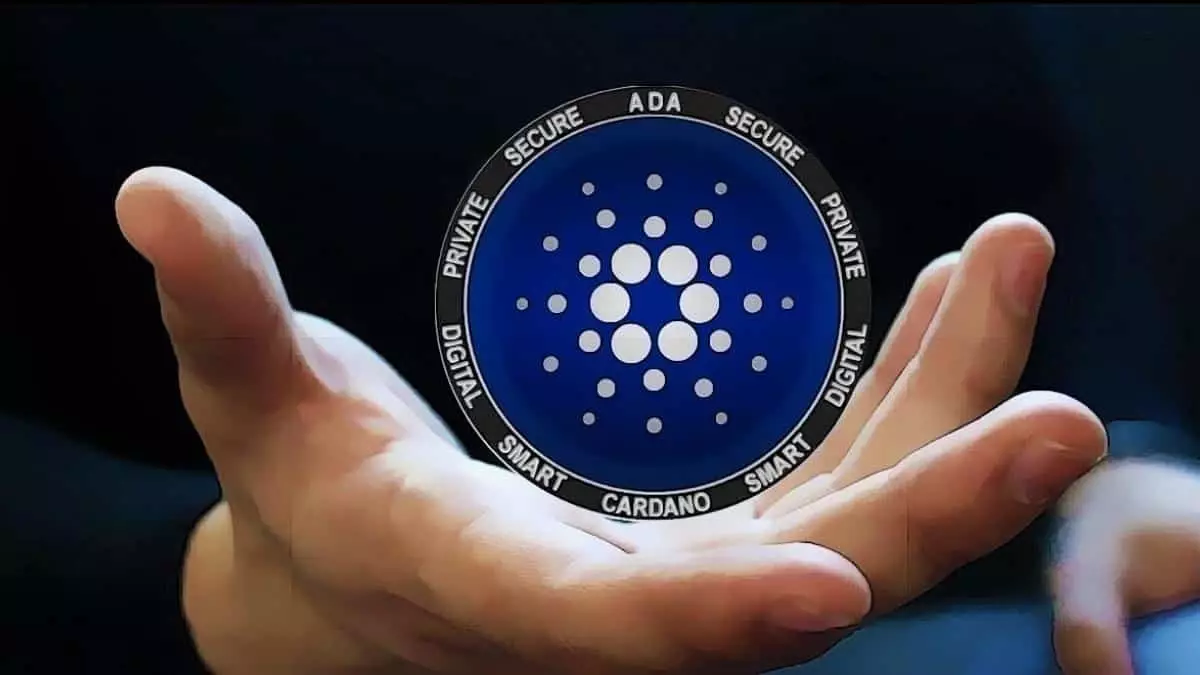In a digital milieu where transparency and trust are currency, the allegations against Cardano and its founder, Charles Hoskinson, could spell disaster. The unfolding situation surrounding a staggering $619 million worth of ADA—Cardano’s native cryptocurrency—transfers has incited widespread concern and debate among investors and blockchain enthusiasts alike. As a self-declared advocate for decentralized systems, Hoskinson finds himself at the center of a storm that not only questions his integrity but also casts a long shadow over the blockchain’s reputation.
The Allegations: A Perfect Storm of Mistrust
On May 7, 2025, the Cardano community was rocked by a claim from an X user known as Masato Alexander. He alleged that 318 million ADA had been illicitly transferred, implicating Hoskinson in a potential fraud scenario. The timing is as suspicious as the claim: these alleged transactions are thought to have taken place during the Allegra Hard Fork, when the underlying code of the blockchain was reportedly altered. Alexander asserts that Hoskinson took advantage of this upgrade to erase critical original ICO UTxOs and subsequently moved these funds into reserves controlled by private keys.
This situation raises pressing questions about the very nature of governance within decentralized blockchain ecosystems. How could such a significant transaction go unnoticed? Where were the checks and balances designed to ensure that no single individual could exert this level of control? More importantly, how will this impact user confidence in Cardano’s future?
Responses from the Top: A Call for Clarity
In response to these allegations, Hoskinson took to social media to defend himself and reassure the community. He claimed that the ADA vouchers tied to those allegedly moved funds became unspendable post-hard fork and were, in fact, placed into a custodial account meant for redemption. Yet, the skepticism that ensued only deepened, as the community struggled to reconcile Hoskinson’s narrative with the startling claims laid out by Alexander. The ensuing backlash prompted him to threaten legal action against Alexander, a move that raises eyebrows more than it quells doubts.
This situation presents a classic case of “he said, she said,” but at the heart of this dispute is the very essence of trust—trust that is fundamental for any project in the cryptocurrency space. It’s alarming that friends and supporters of Hoskinson appear to have distanced themselves during this time, which only serves to heighten the drama and uncertainty.
A Shift in Engagement Strategy: Implications for Community Relations
What could be even more concerning than the allegations themselves is the pivot in Hoskinson’s approach to community engagement prompted by this controversy. In a recent announcement, he indicated that future community interactions would change drastically; he plans to hand over control of his X account to a media company and alter how he conducts his public discussions. This move could be interpreted as a retreat from direct engagement or as a proactive approach to mitigate potential pitfalls arising from unfiltered access. Either way, it paints a picture of a leader who feels besieged rather than fortified.
Such a shift could have long-term implications for Cardano’s community dynamics. Will this pivot lead to increased detachment between the founder and the community? Or will it instigate necessary reform in how leaders interact with their supporters in an age of rampant misinformation? By introducing layers of mediation, are we not eroding the very connection that makes decentralized platforms valuable?
The Broader Impact on Blockchain Integrity
This saga transcends Cardano. It raises existential questions about the structural vulnerabilities that exist within blockchain projects at large. Users are rightfully concerned that if a prominent figure like Hoskinson can be engulfed in controversy, what does that say about their investments? The need for robust auditing practices and transparent governance structures is more critical than ever. Tokens and technology can only thrive in a climate of trust, and the potential damage of mistrust can take years, if not decades, to mend.
While some may think accusations of fraud are mere distractions in the fast-paced world of cryptocurrency, the stakes couldn’t be higher. Brands are not only financial entities; they are complex ecosystems bound by community trust and public perception. If Cardano’s initiative is to maintain its relevance, it must navigate these turbulent waters with both urgency and caution.


Leave a Reply